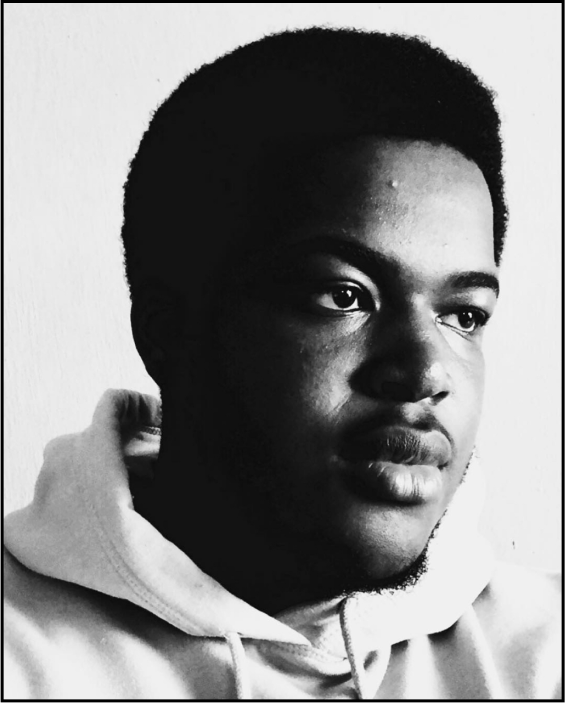Tobi Amoda is a sixth-year medical student. He gave us insight into his unique journey as a medical student in Babcock University.
Tobi Amoda is a sixth-year medical student. He gave us insight into his unique journey as a medical student in Babcock University.
TOBI: “Basically, you're in clinical postings, and you have clinical internships as well. I've had about three clinical internships. I've worked at Reddington Hospital in Ikeja and done some postings at the Federal Medical Centre in Abeokuta. My school has some internships at my home teaching hospital - Babcock University Teaching hospital. That entails just going through the clinical rotations, and it's like an apprenticeship. You know, after learning about the theoretical side of medicine in class, you go to the wards, clinics, and theatres to better understand the clinical approach.”

I’d say that you should treat people with respect and common human decency. And relationships form from there.
Was it difficult finding these jobs?
TOBI: “Well, the ones in my medical school are compulsory, and it's a requirement for graduation, so that was easy. But then, the one outside of school was a little harder to get because you’re looking for a comfortable and conducive place for learning. So you have to apply and wait just like any other job or internship.”
A significant hurdle when typically looking for a job or internship is the competition in the application and selection process. You end up thinking, “did I miss something in the email?” or “what if I don’t get selected?”. The desire to stand out is a difference maker but sometimes results in unwarranted pressure and anxiety.
We had to find out just how competitive it is to find a residential placement here in Nigeria.
What’s the competition like? Is it really tight, or can you just apply and get in?
TOBI: “When you’re in medical school, there's little to no competition because it's a situation where everyone (organisation or the hospitals) is [expected to accept] this type of application. But when you're a doctor, it's a bit more competitive because it's a job.
So right now, no. When you walk into a hospital, and you’re less than, you’re almost guaranteed acceptance. Most times, there's no pay, you know? There's no pay attached to these”
Woah, pause.
Are you serious? Nothing like an allowance or something?
TOBI: “No, no. None at all.”
So it’s just counted to you as your learning, as your “school”?
TOBI: “Exactly.”
Have you ever gone online to look for these placements to typically apply? Or would you say your network has helped you more in that area?
TOBI: “I’d definitely say networks. I mean, for the domestic ones, like in Nigeria, to be honest, it’s who you know. I walked into my only external placements and dropped the letter myself, but most times for other people as well, like for other students. Maybe if you know a doctor that works in your hospital and knows someone, they can put in a word for you. So yes, the network definitely helps.”
What was the process like? Was it long? The waiting process and review?
TOBI: “So I walked in (I live close to the hospital) and inquired about how I could get the placement, and they said I should drop the letter and resume, a letter of application, and my resume - and I did that. Within a week, I went back. They gave me a day to come back, and they accepted me.”
They didn't call you or send any emails. That's very straightforward.
TOBI: “No, it was just very straightforward. I think I got a call to come, but I can't really remember. But I do remember going back in and them telling me when to start, and you know, giving me some rules and so on.”
He explained that due to the nature of the field, the competition to get placements is almost non-existent. He explained that as a pre-med student, you typically go for postings during school breaks/holidays. You would also be there to learn, not treat people, so it wouldn't be an issue for the hospitals/organisations.
Once you get selected for that role, there’s one more thing you’d have to learn on the job - dealing with people. Tobi was also very clear on his simple rule when it comes to people in the workplace.
TOBI: “I think I just gravitate towards people who are nice to me, you know what I mean? You have to treat everybody with respect, especially in medicine, because most of my lecturers and consultants went to school together and worked in the hospital together. Some people knew each other 20 years ago. I’d say that you should treat people with respect and common human decency. And relationships form from there. I think that's the prerequisite for everything, yeah.”
For someone who has been through about four different placements as a pre-med student, Tobi is very much an achiever. He isn’t afraid to experience his own journey and accept help along the way. We asked him for a small word of advice for someone reading this who might need it; the road to professional actualisation is paved with good advice.
“The journey ahead is long but rewarding, so try your best to make the most of the opportunities that are presented to you.” - Tobi Amoda
Building a career isn’t that daunting after all.
Tags: interview

